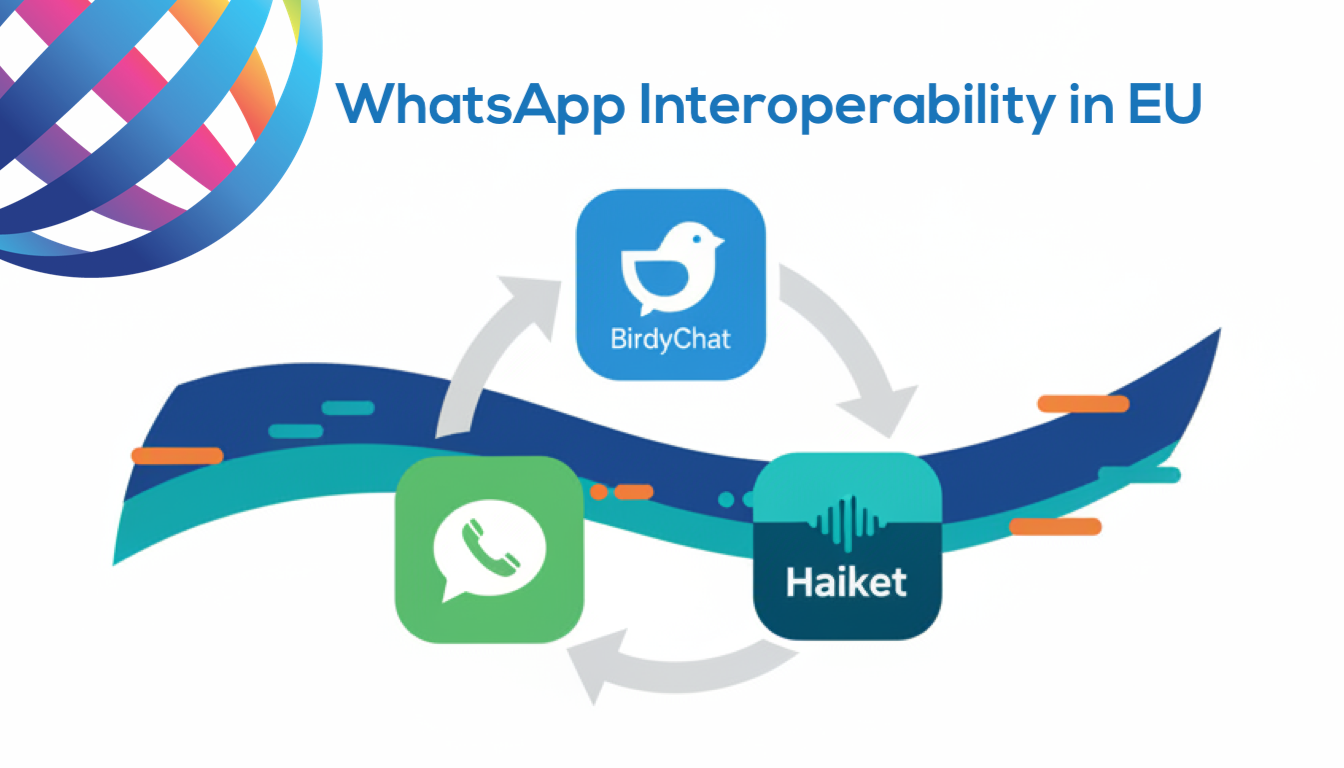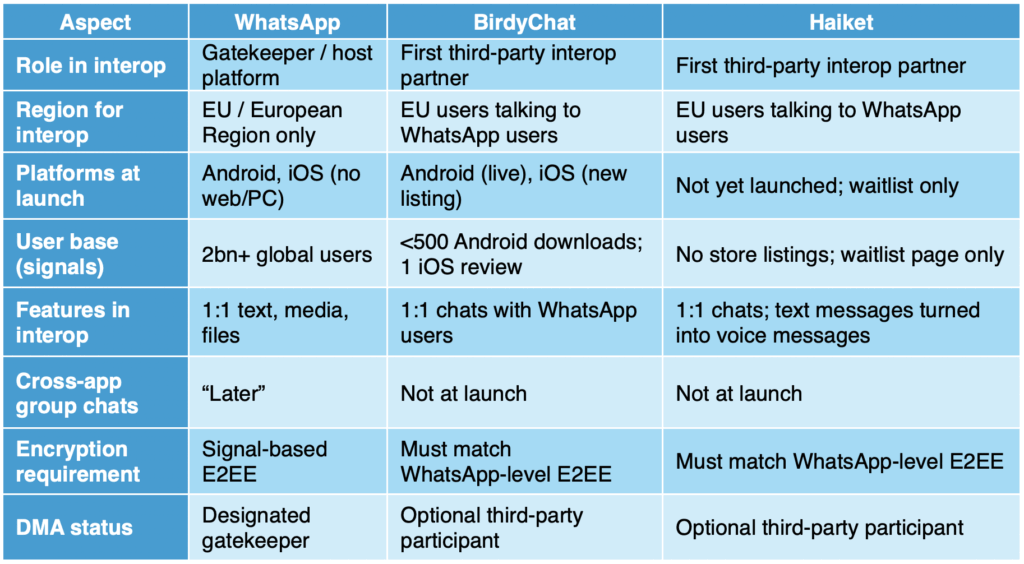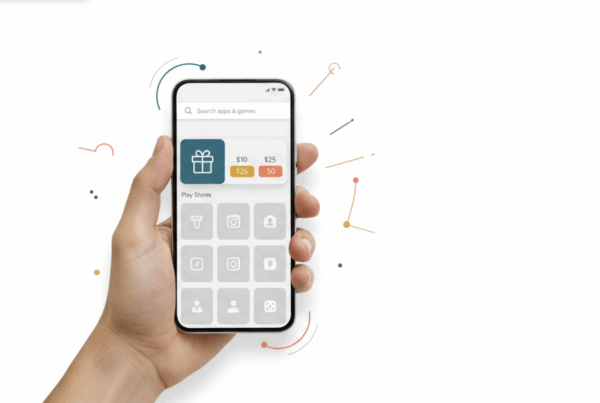WhatsApp is set to connect with two small European messaging apps as part of efforts to comply with the EU’s Digital Markets Act. The move hints at future cross-app messaging, user choice, and security considerations. MEF CEO Dario Betti explains that this rollout offers an early look at interoperability while maintaining encryption and privacy standards.
Meta has confirmed that BirdyChat and Haiket will be the first third-party messaging apps to plug into WhatsApp in the European Union, as it races to comply with the EU’s Digital Markets Act (DMA).

Users in the European Region will “soon” be able to exchange 1:1 messages, images, voice notes, videos and files between WhatsApp and the two apps on both Android and iOS.
The rollout is restricted to WhatsApp accounts registered to numbers in the EU / European Region and, at least initially, to the mobile apps on Android and iOS. Desktop, web and tablet clients are explicitly out of scope for now. Third‑party chats will be off by default: over the coming months users will see a notification in Settings explaining how to opt in and can switch the feature off again at any time.
The big question is what comes next. Does this open the way to interoperability between WhatsApp and RCS, Viber, iMessage or Telegram, or will it remain a niche bridge to tiny apps few users have heard of?
Takeaway table
For now, the picture looks less like the open, email‑style ecosystem many have imagined, and more like a tightly controlled gateway that WhatsApp owns, specifies and polices.”
There are no reliable public figures for total active users of BirdyChat or Haiket, but public signals point to very small scale. BirdyChat, pitched as a work‑focused chat tool, has fewer than 500 Android downloads and a single review on iOS. Haiket is not yet live in app stores at all, offering only a waitlist for what it calls a “free voice‑first communications app” that effectively adds on to WhatsApp by turning text messages into voice.
All of this suggests both are tiny, early‑stage products being used as low‑risk testbeds rather than meaningful rivals to WhatsApp’s two‑billion‑plus users.
What the DMA forces WhatsApp to do
The DMA designates WhatsApp as a “gatekeeper” and requires it to open certain core functions to competitors. For messaging, that means WhatsApp must offer EU users the option to message across services, if the other service chooses to integrate and meets specific eligibility and security requirements. Meta is allowed to preserve equivalent security, including E2EE, when messages traverse between platforms, and must do this without forcing people to switch apps.
Meta says it has worked with European messaging providers and the European Commission for almost three years to design an interoperability model that satisfies the DMA without weakening security. From a user experience perspective, WhatsApp will let people either keep third‑party messages in a separate folder or merge them into a combined inbox, with clear labelling to show when they’re talking to someone on another app.
Why BirdyChat and Haiket?
The choice of BirdyChat and Haiket is striking precisely because they are so small. Regulators get a concrete example that interoperability is implemented. Meta gets a low‑stakes pilot. In market terms, the immediate impact is modest. Only a small early‑adopter cohort will experience cross‑app conversations at first. The much‑discussed scenario of mainstream users seamlessly chatting between WhatsApp and bigger rivals like iMessage, Signal or Telegram remains hypothetical.
Strategically, starting with tiny partners lets Meta validate its technical and security model at low scale and with limited brand risk if anything goes wrong. It also minimises short‑term competitive threat: with such small partners, interop looks more like compliance plumbing than a real shift in market power. At the same time, insisting that partners match WhatsApp’s E2EE and other technical requirements creates a non‑trivial engineering and governance burden. Smaller players may treat this as an opportunity to differentiate; larger incumbents may see it as cost and complexity for limited upside.
Haiket – snapshot
Haiket is a voice‑first, context‑aware messaging app that aims to make spoken conversations, not typing, the primary mode of communication. It is in pre‑launch / closed beta, with no listings yet in the main app stores and access via a website waitlist.
Its core features include:
- Context‑aware voice UI that distinguishes between talking to the device and talking to other people, removing wake words.
- On‑device voice processing for faster, more private communication.
- Fully hands‑free operation: users can listen and respond entirely by voice.
- In the WhatsApp context, it translates text messages into voice.
Haiket is a free consumer app at launch with no disclosed monetisation model. It was founded by Alexander Narest, with strategic investment from John Donovan (founder of Qudit and former CEO of AT&T Communications). It describes itself with lines like “Humans are born to talk but forced to text. Free yourself,” and is rolling out in Europe via a closed beta, with interoperability tests planned over the coming months.
BirdyChat – snapshot
BirdyChat is a messaging app positioned as a work‑oriented third‑party chat service, and one of the first small European apps to integrate with WhatsApp under the DMA. It is live but extremely early‑stage, with a very small user base and limited visibility: fewer than 500 downloads on Android; new iOS listing with effectively no public traction. It positions itself as a privacy‑preserving work messaging “Chat with anyone using just their work email – no phone numbers required.” It was founded by Rolands Mesters (ex‑GoCardless) and Martins Spilners (ex‑FullContact, ex‑saas.group).
User control – and more fragmentation
Meta is keen to stress that third‑party messaging in WhatsApp is entirely optional. EU users will see an in‑app notice explaining how interop works and how third‑party chats differ from standard WhatsApp conversations. They can then choose whether to turn it on and can reverse that decision at any time.
For those who enable it, there are clear benefits: the ability to reach contacts on other apps without installing multiple clients, and the choice to keep third‑party chats in a separate folder or blend them into the main inbox. But the feature also adds cognitive load. Users must learn new labels, understand that different services may handle metadata and backups differently, and interpret warnings about third‑party data handling.
There is also a practical constraint: because interop is mobile‑only at launch, users relying on WhatsApp Web or desktop clients will get an inconsistent experience. Cross‑app conversations that work on the phone will not initially mirror properly on laptops or tablets, which may blunt adoption among heavy users.
MEF comment
From a market perspective, this rollout is both symbolically significant and deliberately cautious. It is the first live demonstration that DMA‑mandated interoperability can be implemented on a major messaging platform without dropping end‑to‑end encryption. That matters for Meta, for the Commission and for other gatekeepers watching Europe’s experiment.
But the choice of BirdyChat and Haiket, two services with tiny or non‑existent user bases, and the decision to limit the first phase to mobile, 1:1 messaging make this feel like a minimum viable compliance step, not a radical rewiring of the messaging landscape. For now, the picture looks less like the open, email‑style ecosystem many have imagined, and more like a tightly controlled gateway that WhatsApp owns, specifies and polices.






